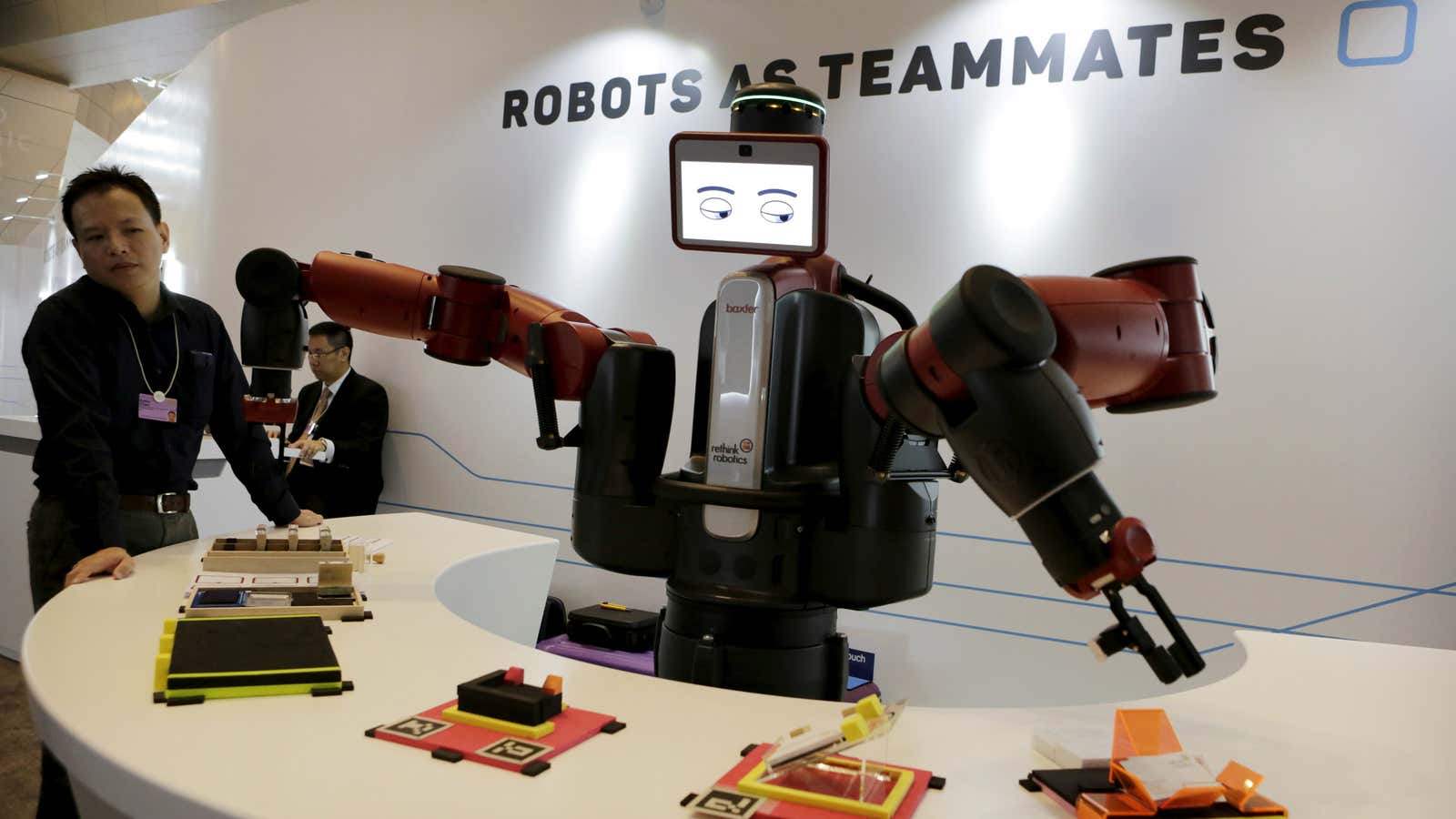Much has already been made about how artificial intelligence is going to transform our lives, ranging from visions of the future in which robots make humans obsolete to utopias in which technology solves intractable problems and frees up people to pursue their passions. Consultancy firm PwC ran the numbers, and came up with a relatively rosy scenario with regards to the impact AI will have on the global economy. By 2030, global GDP could increase by 14%, or $15.7 trillion, because of AI, the firm said in a report today (pdf).
Almost half of these economic gains will accrue to China, where AI is projected to give the economy a 26% boost over the next 13 years—the equivalent of an extra $7 trillion in GDP. North America can expect a 14.5% increase in GDP, worth $3.7 trillion.
According to PwC, North America will get the biggest economic boost in the next few years as consumers and industries are more ready to incorporate AI. By the mid-2020s, however, China will rise to the top. Since China’s economy is heavy on manufacturing, there is a lot of potential for technology to boost productivity, but it will take time for new technology and the necessary expertise to come up to speed. When this happens, AI-enabled technologies will be exported from China to North America. What’s more, Chinese firms tend to re-invest more capital than North American and European ones, further boosting business growth in AI.
PwC’s study defines four types of AI: automated intelligence, which performs tasks on its own; assisted intelligence, which helps people perform tasks faster and better; augmented intelligence, which helps people make better decisions; and autonomous intelligence, which automates decision-making entirely. Their forecasts isolate the potential growth from AI, keeping all other factors in the economy equal.
A large part of the forecast GDP gains—$6.6 trillion—are expected to come from increased labor productivity, with businesses automating processes or using AI to assist their existing workforce. This suggests PwC believes AI will generate a productivity boost that’s bigger than previous technological breakthroughs—despite recent advancements, global productivity growth is very low and economists are puzzled about how to get out of this trap.
The rest of the projected economic growth would come from increased consumer demand for personalized and AI-enhanced products and services. The sectors that have the most to gain on this front are health care, financial services, and the auto industry.
Notably, there is no panic in the report about AI leading to excessive job losses—in previous reports, PwC has already tried to debunk some of the scarier forecasts about that. Instead the researchers recommend that businesses prepare for a “hybrid workforce” where humans and AI work side-by-side. In harmony? TBD.
